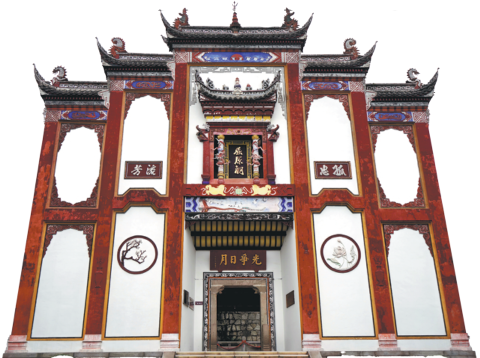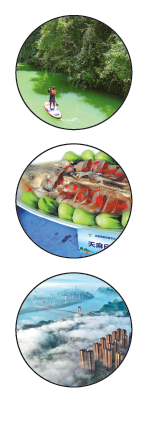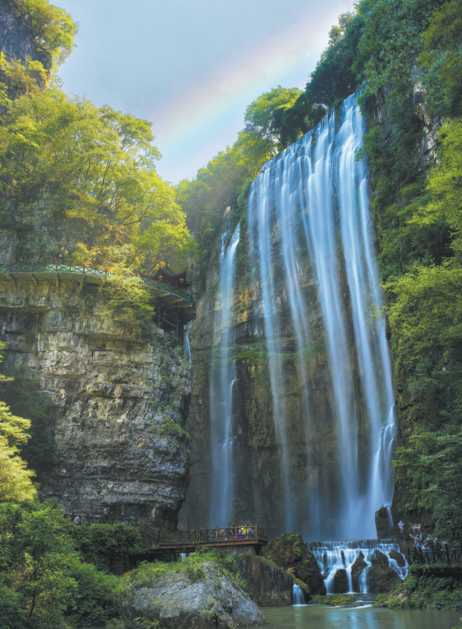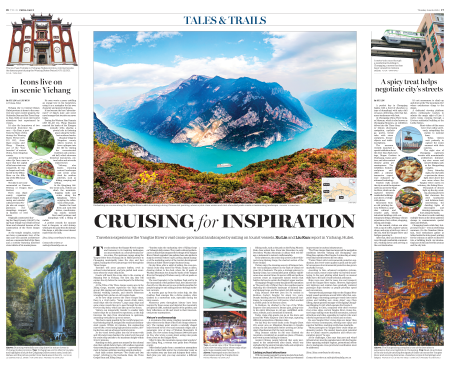
The Qu Yuan Temple in Yichang, Hubei province, commemorates the famous poet during the Warring States Period (475-221 BC).

Yichang has a lot to offer for tourists, and highlights include the Qingjiang Gallery scenic area, local fish dishes, and the picture-perfect river bank area in the city.

Stunning waterfalls are a big draw for nature lovers in Yichang, Hubei province.
Yichang city in Central China's Hubei province is home to the country's key water control projects, the Gezhouba Dam and the Three Gorges Dam. Both are must-visit tourist attractions best experienced by cruises.
It's also the hometown of two renowned historical figures — Qu Yuan, a poet from the State of Chu during the Warring States Period (475-221 BC), from Zigui county, and Wang Zhaojun, one of the "four beauties" of ancient China, from Xingshan county.
According to the legend, when Qu Yuan came to know that the capital of his home state was conquered, he was in despair and took his life in the Miluo River on the fifth day of the fifth lunar month.
The date is now commemorated as Duanwu Festival, or Dragon Boat Festival.
Every year, Zigui county organizes grand dragon boats racing and colorful cultural events. People also eat zongzi, glutinous rice dumplings wrapped in bamboo or reed leaves.
Originally constructed during the Tang Dynasty (618-907), the Qu Yuan Temple was rebuilt several times and relocated because of the construction of the Three Gorges Dam.
At the temple complex, tourists can have a panoramic view of the dam and visit ancient architecture such as a memorial hall of Qu Yuan and a corridor featuring inscribed stone tablets of his masterpieces.
He once wrote a poem extolling an orange tree in his hometown, using it as a metaphor for his own character and pursuit of dreams.
It has become the best "advertisement" of Zigui's juicy and sweet navel oranges that tourists can savor today.
During the Western Han Dynasty (206 BC-AD 24), Wang Zhaojun married the leader of the Xiongnu nomadic tribe, playing a pivotal role in fostering peace along the turbulent northern border. Zhaojun village in Xingshan county allows tourists to have a glimpse into her life by visiting her reconstructed residence and a memorial hall, which showcase historical documents, cultural relics and artworks related to her.
Yichang also boasts stunning natural landscapes and scenic areas ideal for outdoor activities, such as hiking, camping and rafting.
At the Qingjiang Gallery scenic area, visitors can climb the mountain-hugging trails and cruise along the Qingjiang River, enjoying the reflections of the peaks.
Besides the local fresh and tasty fish dishes, mouthwatering snacks include fried small potatoes and dumplings with a filling of radish.
A perfect remedy for summer heat is liangxia, or cold shrimp, which gets its name from its shrimp-like shape, a jelly-like sweet dessert made from rice milk.
Contact the writers at xulin@chinadaily.com.cn

